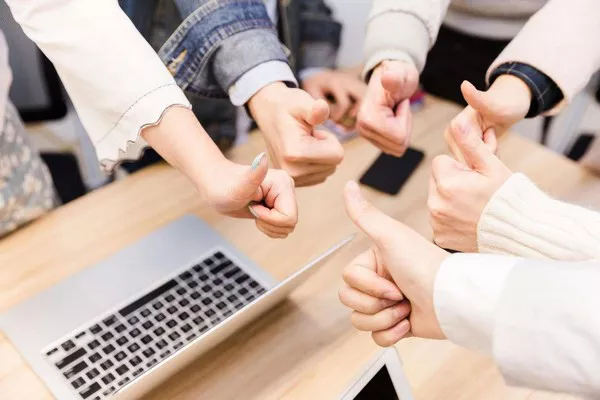Friendships are among the most significant and fulfilling relationships we form in our lives. They provide companionship, emotional support, and a sense of belonging. However, not all friendships are healthy or equal in terms of effort, emotional investment, and support. An unbalanced friendship is one where there is a disparity in how much one person gives versus what they receive. In these types of friendships, one individual may feel overburdened, neglected, or undervalued, while the other may remain oblivious to the imbalance.
Understanding what constitutes an unbalanced friendship, how it manifests, and the effects it has on those involved can help individuals identify and address the issue, ensuring that their relationships remain healthy, fulfilling, and mutually supportive.
1. What Constitutes an Unbalanced Friendship?
A friendship is considered unbalanced when one person consistently contributes more time, energy, and emotional support than the other. This imbalance can take many forms. It could be emotional, where one person is constantly supporting the other without receiving the same level of care in return. It may also involve time and effort, where one friend is always the one initiating plans, reaching out, or making sacrifices, while the other is passive or unavailable.
An unbalanced friendship can manifest in several ways:
Emotional Disparity: One person always provides emotional support, advice, and comfort, while the other offers little or no emotional reciprocation.
Unequal Effort: One friend is the primary initiator, planning activities, reaching out for catch-ups, and maintaining the connection, while the other rarely takes initiative.
One-Sided Giving: One friend is consistently giving, whether it’s in the form of money, time, or emotional energy, while the other is either unable or unwilling to offer the same.
Lack of Respect or Reciprocity: The balance of respect and appreciation is skewed, where one person may feel overlooked or taken for granted, and the other is unaware of the neglect they are causing.
This imbalance can stem from various factors, such as personality differences, life circumstances, or unspoken expectations. However, when these imbalances become chronic, they can have a significant negative impact on both individuals involved.
2. Signs of an Unbalanced Friendship
Recognizing the signs of an unbalanced friendship is crucial for addressing the issue before it leads to feelings of resentment or emotional burnout. Some common indicators of an unbalanced friendship include:
Constantly Feeling Exhausted or Taken for Granted
In a healthy friendship, both individuals feel appreciated for the time and energy they invest in the relationship. However, in an unbalanced friendship, one person may feel drained and unappreciated. You may find yourself constantly putting in more effort, whether it’s through emotional support, planning activities, or simply staying connected, without receiving the same level of attention in return.
Always Being the One to Reach Out
When a friendship is one-sided, it often feels like you are always the one reaching out, making plans, or offering support. If your friend rarely contacts you first, cancels plans frequently, or is consistently unresponsive, it may indicate an imbalance. Friendships should be reciprocal, where both individuals make an effort to maintain the relationship.
Unilateral Emotional Support
In an unbalanced friendship, one person may be constantly offering emotional support, listening to their friend’s problems, and helping them through difficult times, while receiving little in return. The emotional labor in the relationship becomes lopsided, which can lead to feelings of resentment and frustration over time.
Feeling Like Your Needs Are Ignored
A sign of an unbalanced friendship is when your needs, whether they’re emotional, social, or practical, are regularly overlooked or dismissed. If your friend shows little concern for your well-being or fails to acknowledge your struggles, it can create an unhealthy dynamic where you feel unimportant or undervalued.
Resentment Building Up
As the imbalance continues, feelings of resentment can build up. One person may begin to feel like they are being used, or that their friendship is not as valued as they thought. Over time, these feelings can fester, leading to bitterness or an emotional disconnect between friends.
3. The Causes of Unbalanced Friendships
Unbalanced friendships don’t always occur because one person is intentionally selfish or neglectful. There are several potential causes of imbalance in friendships:
Different Life Stages or Priorities
Sometimes, people’s lives evolve in ways that impact their friendships. For instance, one person may be going through a busy career phase or a personal crisis, making it difficult for them to be as emotionally or socially available to their friend. On the other hand, the friend who is not going through these challenges may feel neglected or frustrated by the lack of effort from the other person.
Personality Differences
People with different personality types may find themselves in unbalanced friendships. For example, an introverted person may struggle to keep up with the demands of an extroverted friend who is constantly seeking attention or social interaction. Likewise, one person might be naturally more giving and empathetic, while the other may not prioritize emotional connection in the same way.
Unspoken Expectations
An unbalanced friendship can also arise when there are unspoken expectations or assumptions about the relationship. One friend may expect constant communication or emotional support without ever expressing this to the other person, leaving their friend unaware of the burden they’re placing on them.
Imbalance in Social Dynamics
In some cases, the imbalance may be a result of social dynamics, such as one person always taking on the role of the “caregiver” or the other being overly dependent. For instance, in a friendship where one person plays the role of the fixer or helper, the other may adopt a more passive role, leading to unequal exchanges in the relationship.
A Lack of Self-Awareness
Sometimes, people are simply unaware of how unbalanced their friendship is. One person may not realize that their friend is consistently giving more or making more of an effort. This lack of self-awareness can lead to neglect, even if there is no malicious intent involved.
4. The Impact of an Unbalanced Friendship
An unbalanced friendship can have both emotional and psychological consequences for the individuals involved. The person who is giving more than they receive may experience:
Burnout
Emotional burnout is one of the most common consequences of unbalanced friendships. Constantly giving without receiving can drain your emotional resources, leaving you feeling exhausted, frustrated, and even resentful toward the other person. Over time, this emotional depletion can impact other aspects of your life, including your self-esteem and overall well-being.
Feelings of Unfulfillment
When a friendship lacks reciprocity, it can lead to feelings of emotional emptiness. You may feel that you are not getting the support or appreciation that you deserve, leaving you unfulfilled despite investing significant time and energy into the relationship.
Resentment and Bitterness
An unbalanced friendship often leads to resentment, particularly when the person who is giving feels like their needs are consistently ignored. As this resentment builds, it can create a rift between friends, causing emotional distance and potentially even the end of the relationship.
Loss of Self-Worth
In extreme cases, the imbalance in a friendship can cause the person who is giving too much to begin doubting their own worth. When their needs go unmet, they may internalize the lack of reciprocity, leading to decreased self-esteem and self-worth. They may feel like they are not deserving of care, attention, or respect.
5. How to Address an Unbalanced Friendship
If you find yourself in an unbalanced friendship, it’s essential to address the issue to preserve your emotional health and the integrity of the relationship. Here are a few strategies for dealing with an unbalanced friendship:
Communicate Openly and Honestly
The first step in addressing an unbalanced friendship is communication. Express your feelings honestly and calmly to your friend, explaining how the imbalance is affecting you. Be specific about the behaviors that are making you feel overlooked or underappreciated, and ask for the changes you need in order to feel more valued in the friendship.
Set Boundaries
Setting clear boundaries is an essential step in maintaining a healthy, balanced friendship. If you feel that you are constantly giving more than you’re receiving, it may be time to establish limits on what you’re willing to do for your friend. Setting boundaries can help you preserve your emotional well-being and ensure that the relationship remains equitable.
Evaluate the Friendship
After you’ve had a conversation and set boundaries, it’s important to evaluate the friendship. Is your friend receptive to your concerns? Are they willing to make an effort to bring balance to the relationship? If not, it may be time to reconsider whether the friendship is worth maintaining. Not all friendships are meant to last, and sometimes it’s necessary to let go of relationships that are consistently one-sided.
Foster Mutual Understanding
Both friends should work toward fostering mutual understanding and empathy. If one person is unable to meet the needs of the other, it’s crucial to understand why this is the case and how they can adjust. Honest conversations and a willingness to adjust are key to ensuring that both friends feel heard and valued.
Conclusion
An unbalanced friendship can be emotionally draining and ultimately damaging to both individuals involved. It’s crucial to recognize the signs of an unbalanced friendship early and address the issue before it causes harm. Through open communication, setting boundaries, and mutual respect, it is possible to restore balance to a friendship or, in some cases, decide that the relationship is no longer serving your well-being. Healthy friendships are built on reciprocity, respect, and support, and when these elements are present, the relationship can thrive.
Related topics:
























